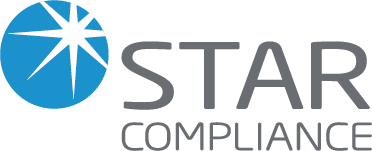Despite uncertainty over how Brexit may alter banking compliance regulations, compliance leaders can take a few steps now to ensure firm adaptability later
Almost since its announcement, Brexit has led to speculation about what such a move might mean for the UK economy. While we’ve already witnessed some of the impacts, questions still linger around a number of sectors, chief among them being financial services.
Because financial institutions must comply with the regulations of whatever area in which they’re doing business, every global firm operating in the UK must be prepared to adapt to new and changing financial compliance regulations. Compliance teams have spent years conforming to regulations of the European Union, but as Brexit unfolds they’re now tasked with reviewing and updating policies and procedures on everything from data residency and privacy guidelines to cybersecurity and more. Upon reviewing current practices and how they align with developing regulations, firms may need to cease spending on certain programs, reallocate resources, retrain teams, or take other measures to address the changes.
NAVIGATING BREXIT'S IMPACT ON REGULATION
How exactly regulations will change is still largely unclear. But many believe there will be a UK equivalent for every EU regulation with slight variations, such as with MiFID II and the market abuse regime. Both of these are EU regulations that the UK must now redefine. In theory, the UK has the discretion to replace or amend these guidelines, but it’s likely that they will remain quite similar for now and diverge further in the future.
Thousands of firms based in the EU are also opening up new UK offices as London remains a global financial center. As more firms register in the UK, recruiting and hiring competition will pick up as employees move from firm to firm. Compliance leaders must ensure that firms stay agile and adaptable in the face of new and changing regulations, even as new challenges in recruiting and retaining talent emerge.
The initial impact of Brexit, alongside that of the pandemic, has already created many new or altered regulations. As such, it’s time for all compliance teams to make a wholesale sweep of compliance capabilities and set up their firms to address future changes. Although no one is certain yet how new UK regulations will diverge from those in the EU, compliance leaders can take steps now to ensure adaptability later as the situation evolves.
ASSESS YOUR CURRENT STATE
Before you can adjust to meet new requirements, you must fully understand your current state of compliance. Familiarize yourself with your current business, program administration, policies, employees, risk factors, and so on. As new information becomes known—likely in pieces over the next 12 to 24 months—this level of organization can help you more easily assess new risk in relation to your current financial compliance programs.
What’s more, a smart, configurable compliance platform can help firms make quick policy adjustments and rule changes with agility, rather than with lengthy development projects that may become irrelevant down the line if new information requires a change in course. An incremental, agile approach will help firms successfully adapt to coming changes, and that starts with understanding the current state of affairs.
CONNECT WITH THE COMPLIANCE COMMUNITY
With many people still working remotely and not attending trade conferences or events, it’s more important than ever to keep in touch with the compliance community. Use Brexit as a topic to benchmark with your peers, vendors, and others in the industry. Attend virtual conferences and webinars on the subject to get more details on potential changes to financial compliance regulations and hear how other businesses are adapting. For example, StarCompliance is hosting an EMEA event in the fall. We are expecting more than 100 compliance professionals and will hold numerous sessions about compliance in the region, so attendees can choose to sit in on the topics that interest them most.
LEVERAGE SOFTWARE TO TAP INTO INTERNAL EXPERTISE
Utilize compliance software to gather information internally to both uncover areas of uncertainty and gain new and valuable information. The STAR Platform, for example, includes certification processes that are useful for seeking out and aggregating information. While compliance leaders most often use this feature to send out certifications, they can also use it to gather other information from employees.
Poll employees, managers, supervisors, or other compliance teams with questions such as: “What are your biggest concerns about Brexit?” Or: “How do you expect Brexit to impact your day-to-day role?” You may discover trending concerns or questions that come in from across the firm that you should address. Or you may discover unexpected pockets of knowledge within your organization from those who have attended different conferences or heard advice from others in their networks.
While Brexit’s full impact on financial services is still uncertain, many financial compliance regulations are likely to change in the coming months. Without clear insight into the future, the best approach is to set your firm up to adapt successfully to whatever may come. The right tools and practices can help you take an agile approach.



